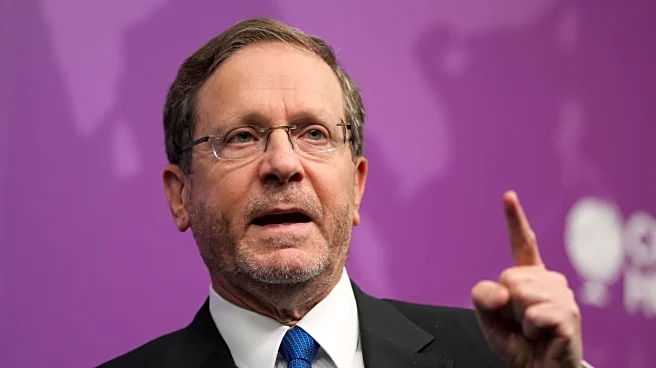What is the story about?
What's Happening?
Democratic National Committee Chair Ken Martin is set to propose a resolution aimed at restricting corporate and dark money spending in the 2028 presidential primaries. This initiative aligns with progressive calls within the party to address campaign finance rules. The resolution will be introduced at the DNC's August meeting, where a new reforms panel will be tasked with exploring ways to eliminate such donations from the upcoming presidential primary cycle. The resolution does not explicitly mention super PACs, and its impact on super PAC spending remains uncertain. The draft acknowledges that long-term solutions require Congressional action, including potentially overturning the Citizens United decision, which has significantly influenced campaign finance dynamics since 2010.
Why It's Important?
The proposed resolution by the DNC Chair reflects ongoing debates within the Democratic Party regarding campaign finance reform. Restricting corporate and dark money could reshape the financial landscape of Democratic primaries, potentially reducing the influence of large financial contributors. This move could align the party more closely with progressive values, but it also poses challenges, as critics argue it might disadvantage Democrats compared to Republicans who benefit from super PACs. The resolution's success could lead to significant changes in how campaigns are funded, impacting candidates' strategies and the overall political environment.
What's Next?
If the resolution is passed, the newly formed panel will explore actionable steps to enforce the proposed restrictions. The panel will also develop legislative goals to present to Congress, aiming for broader campaign finance reform. The DNC members will vote on the resolution during their summer meeting in Minneapolis from August 25-27. The outcome of this vote and subsequent actions by the panel could influence the party's approach to campaign finance in the 2028 primaries and beyond.
Beyond the Headlines
The resolution highlights the ethical and legal complexities of campaign finance reform. It underscores the tension between maintaining competitive electoral strategies and adhering to principles of transparency and fairness. The long-term implications could include shifts in political power dynamics and increased pressure on Congress to address campaign finance issues comprehensively.
















